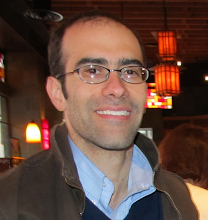And Finally...
Chris Berman
Doctor of Humane Letters (L.H.D.)
Son of Brown, you began your career on this campus as the sports director for radio station WBRU. Since then you have become as familiar to American sports fans as any Hall-of-Famer. As one of our most respected sportscasters, you have reported play-by-play action for football, baseball, hockey and golf fans; called Cal Ripken’s record-breaking 2,131st consecutive game; announced Super Bowls and World Series games, – including one interrupted by the 1989 San Francisco earthquake; and earned numerous awards for your enthusiasm and in-depth reporting.
Whether hosting SportsCenter, assuming the guise of the Swami to predict game results, or assigning amusing monikers to the likes of Jose “Can You See” Canseco and Wade “Cranberry” Boggs, you entertain and inform us with your knowledge and wit. For inviting us to share in your enjoyment of sports, we honor you by presenting you a Doctor of Humane Letters, honoris causa.
Ab alma matre communi nostra educatus, primo apud stationem litteris WBRU designatam eras praeco ludorum primarius, voce tua transmissionum radiophonicarum ope longe dilata; sequenti tempore, ut illi quorum imagines in aula athletarum famosorum ponuntur, sic tu eis civibus qui ludis studeant pernotus factus es, ut inter spectatissimos lusuum praecones numereris. Quidque, ut accidit, in ludis diversis, velut ludo pede follique, basium quattuor pilaeque ludo, ludo denique pila minima fustique pronuntias, auribus ludis studiosorum arrectis. Inter ludos a te narratos, notissimi sunt et ille bis millesimus centesimus primus tricesimus basipilae ludus quem Calvinus Ripken iunior lusit nullo intermisso otio, et illa ista basipilae pediludiique semel in anno certata certamina apud quae victores summam adipiscuntur laudem. Quorum certaminum illa narrasti anno millesimo nongentesimo octogesimo nono Sancti Fransisci certata quae motus terrarum interruperunt. Omnia ob haec studiumque ludis omnimodis tuum, multis praemiis affectus es.
Nos non tantum doces ut certaminibus athleticis eruditus, sed etiam oblectas sale facetiisque tuis, sive sub vatis persona quid in ludis futurum sit praedicas, seu iucundis nominibus athletas quosdam vocas, ut Wade “Vade Mecum” Boggs, vel Josephus “Non Ineptus” Canseco. Quia nos participes facis tuae ludorum oblectationis, te afficimus nomine Doctoris in Litteris Humanioribus, honoris causa.
